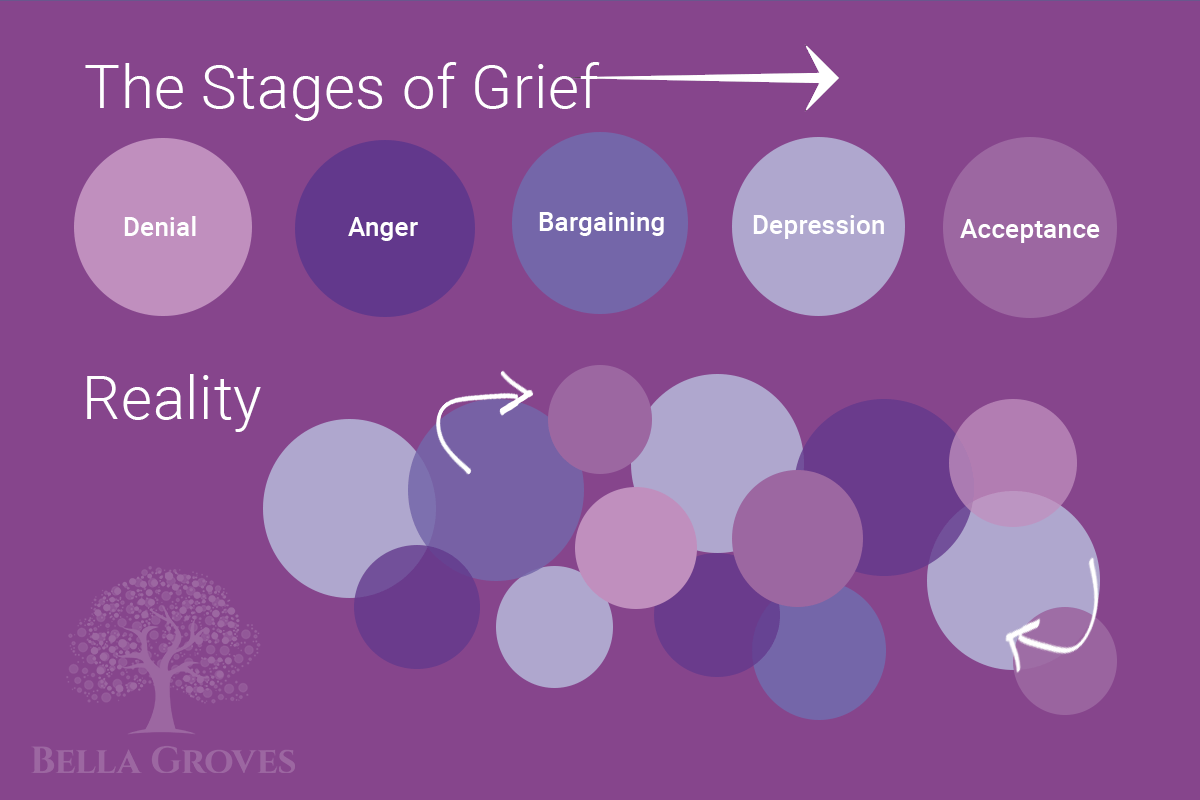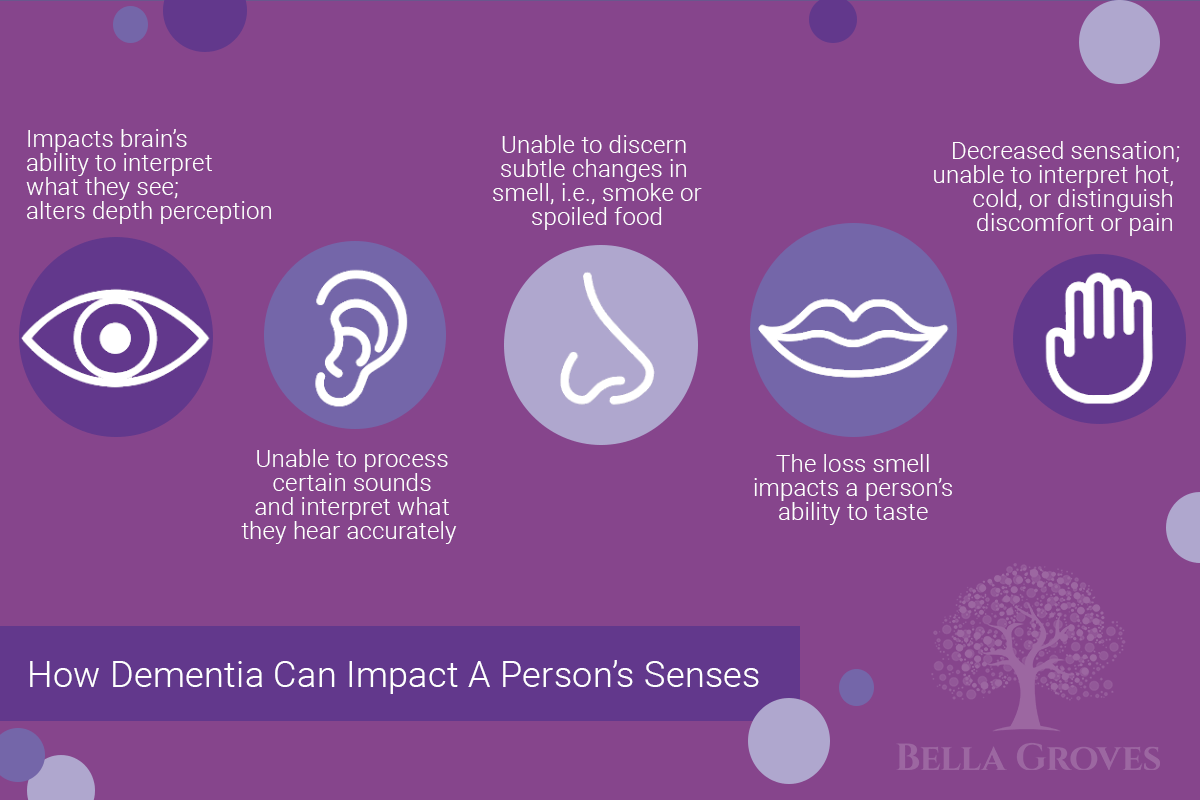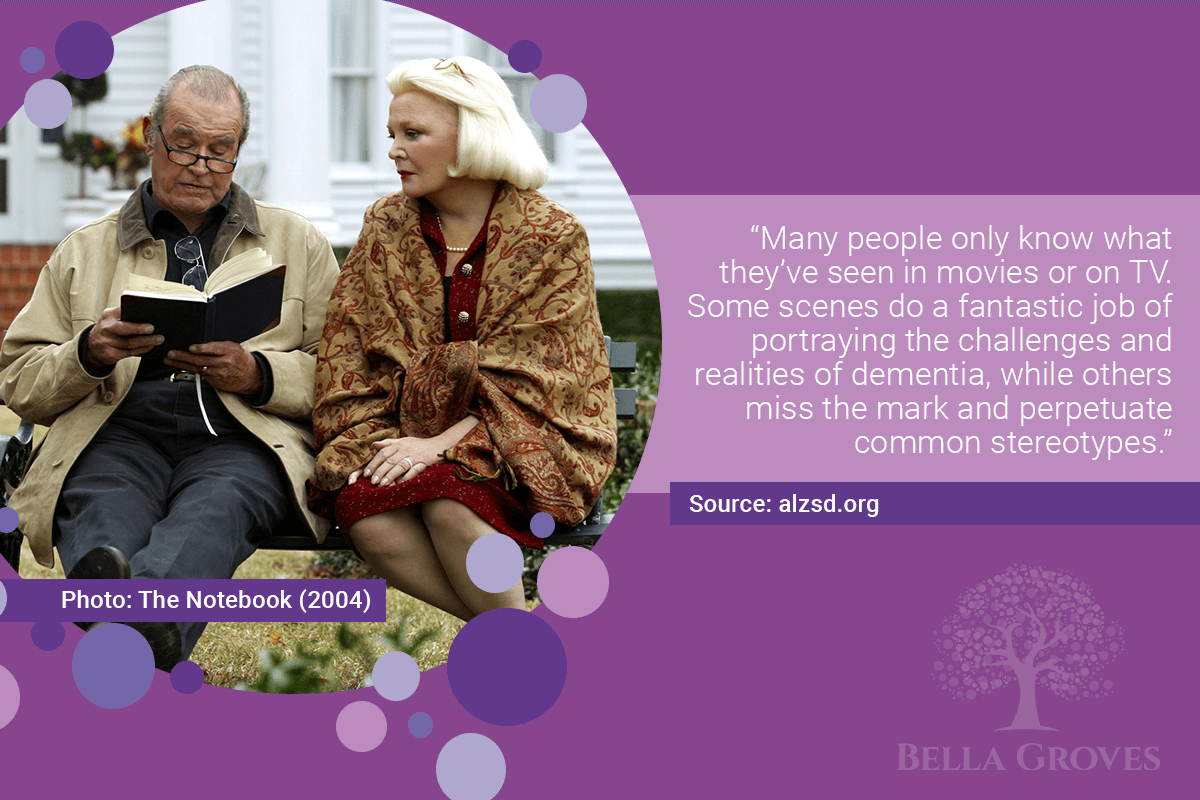
How Coping with a Dementia Diagnosis Can Feel Like Grief
In 1969, Swiss-American psychiatrist Elisabeth Kubler-Ross released her best-selling book, “On Death and Dying.” Although many medical strides had been made, and treatments had become commonplace, doctors during the 1960s were adamant about finding ways to stall death and disease diagnoses. They were rarely honest regarding bad news, often failing to tell patients that treatments weren’t working or if further treatment would benefit.
In short: we avoided speaking openly and honestly about health problems and concerns.
Kubler-Ross knew that something had to be done in order to expose the difficult truths that come along with diagnoses. Kubler-Ross herself was a doctor who made it a point to discuss the details of an illness with her patients, ensure that they understood each necessary step, and – even more radically for the era – actually listened to and worked alongside her patients and their families.
In addition, she proposed the patient-focused, death-adjustment pattern, the Kubler-Ross Grief Cycle, or five stages of grief, and we tend to associate these stages with loss. While, in many cases, it can be the physical loss of a person, other life experiences can create a sense of loss, including a dementia diagnosis. For example, knowing their life will change, a person diagnosed with dementia may feel a sense of loss around their current life and cognitive abilities. And a person impacted by dementia may feel a sense of loss about their relationship with their loved one.
At Bella Groves, our mission is to help individuals and families navigating a dementia diagnosis – starting from day one. Whether you have been diagnosed with dementia or someone you know has, it can be a lot to process emotionally. Dementia is not easy, and we know coping with a dementia diagnosis can often feel like grief.
Kubler-Ross Grief Cycle
The Kubler-Ross Grief Cycle refers to the emotions a person experiences as they navigate loss or grief. Over time, as individuals lived through their conditions, she noticed them finding sense and meaning in life.
Denial
In this initial stage, it’s common to instantly deny the news of a diagnosis and simply go numb. In the denial stage, you’re not living in reality but rather in a preferable reality. Our body’s instant defense mechanism is to not completely accept difficult news but to suppress the realistic facts and pace slowly through it.
It’s been said that the denial stage is something that helps us survive a loss or a diagnosis at first; these feelings allow us to cope rather than become overwhelmed.
Someone navigating a dementia diagnosis might think:
- “The doctor must be wrong, and we should get another opinion.”
- “Something like this could never happen to my family.”
- “Mom doesn’t have dementia; she’s just getting older. I forget things all the time!”
Anger
When the denial begins to fade, and we start to face the reality of the situation, anger sets in. Professionals have said that anger is a necessary stage of grief, as it’s not healthy to suppress these feelings. The best advice for this stage is to simply let the anger out and encourage the feelings; eventually, they will begin to dissipate once they have left your system.
Anger has been referred to as “a strength to bind you to reality” during difficult times, and it is a key component in bridging the gap between denial and acceptance.
When going through a dementia diagnosis, anger can manifest in these occurrences:
- You might begin questioning your foundations of faith or spiritualism.
- You might become easily frustrated by the new challenges you’re facing.
- You might resent friends or co-workers who are not impacted and don’t understand what you are going through.
Bargaining
If you’ve ever gone through a fearsome situation, whether it’s a health scare or a car accident, you might have found yourself attempting to make some sort of deal with a higher power; “If you let me live through this, I promise I will…” Sound familiar?
The bargaining stage is essentially a phase of false hope, where people believe they might be able to negotiate their way through it. It’s also the point of grief where the “what if” statements come into play. For instance, after learning about a dementia diagnosis, you might begin thinking:
- “What if we had caught this sooner?”
- “Why didn’t we know something was wrong? What could I have done to prevent this?”
Depression
Depression is often mistaken as the singular sign of grief, and in some cases, it can be. However, this phase occurs after the dismissals, the wrath, and the negotiations. It’s when people start to take in the reality of the situation. As a result, many people begin to withdraw from their usual routines and experience a sense of hopelessness.
As you’re navigating a dementia diagnosis:
- You might stop spending time with friends or family, and start isolating yourself.
- You might feel overwhelmed by challenges and changes, leading to further isolation.
Acceptance
The final and most important phase of grief is acceptance, confirming to yourself that despite the hardships of this difficult time, you are going to be okay. You are ready to educate yourself on dementia and help your loved one continue to lead a full and purposeful life.
When we go through acceptance, we begin to grow, learn, appreciate the little things, and evolve into our new reality.
Acceptance after a dementia diagnosis can come in many forms, and this is truly where individuals and families begin to understand that dementia isn’t the end of a person’s story; it’s simply another chapter. During this stage in the grieving process, your family might begin finding support groups, making changes to accommodate the person living with dementia, or seeking care options to ensure they are receiving appropriate care and support.
Dementia gradually takes away the person you love, and it’s natural for care partners, family members, and friends to mourn the person they’re afraid to lose.
It’s common to experience the five stages of grief when this happens. The stages might not happen in an exact order, and they might not occur within a convenient timeframe, but it’s important to learn how to navigate this process following a diagnosis. It’s crucial to feel these feelings to move toward acceptance and peace.
Coping with Grief Following a Diagnosis
Grief is an incredibly personal process; no two people experience the same feelings or the same severity. Here are some ways to cope with a dementia diagnosis.
Claim Your Experience
Allow yourself to feel all of the feelings following a diagnosis. No matter how sad or angry you feel, remember these are healthy and normal emotions that need to be expressed. When you begin to accept these feelings and claim this experience for yourself, it will become easier to navigate personally, and it will ensure that you’ll be able to accept the things you cannot control.
Talk to Someone
Whether it’s a therapist, a close friend, a relative, or a support group, find someone you trust who can serve as a helpful and understanding outlet for your feelings. If you’re interested in finding others navigating a dementia diagnosis to share your feelings and exchange resources, we encourage you to visit our Level 1: Learning Center and join our dementia community.
Do Not Isolate Yourself
While it’s important to take the time you need to go through your feelings by yourself, as a care partner, it’s important to maintain your routine. Many times, individuals living through post-diagnosis neglect their own lives, which can be detrimental to mental well-being. Be sure to take a break by participating in fun events with friends or strengthen your support system by staying involved in the activities and hobbies you enjoy.
“A Lesson for the Living”
When “On Death and Dying” was received by critics, Time magazine called it “A profound lesson for the living,” and they were right. The innovative findings of Elisabeth Kubler-Ross reflected a version of American health to the public, who didn’t like what they saw. It was not just a call to action for the quality of care and the processes of provider-patient honesty and trust during health crises but a buoyant guiding voice for the families and caregivers struggling with feelings of hopelessness and grief.
While the book was written with bereavement in mind, it should also be heralded as insightful literature regarding how far our society has come with health conditions, the choices people make when seeking help and treatment, and responding to those we love with dignity, respect, and understanding.
Bella Groves is dedicated to helping you through every stage as you are navigating a dementia diagnosis. If you have questions about your dementia care journey, we invite you to call us at (830) 323-0440 or email us at hello@bellagroves.com.


